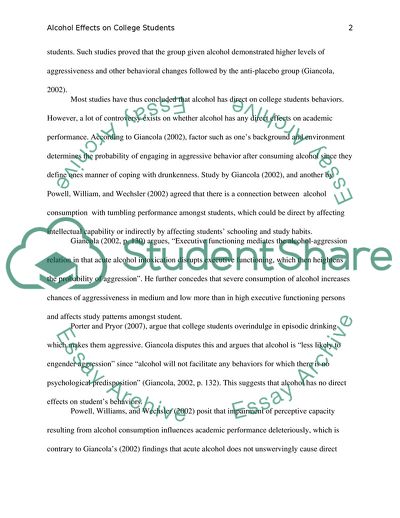Cite this document
(The Effects of Alcohol and How It Affects College Students GPA Literature review Example | Topics and Well Written Essays - 2000 words, n.d.)
The Effects of Alcohol and How It Affects College Students GPA Literature review Example | Topics and Well Written Essays - 2000 words. https://studentshare.org/sociology/1779371-college-alcohol-abuse-and-academic-performance
The Effects of Alcohol and How It Affects College Students GPA Literature review Example | Topics and Well Written Essays - 2000 words. https://studentshare.org/sociology/1779371-college-alcohol-abuse-and-academic-performance
(The Effects of Alcohol and How It Affects College Students GPA Literature Review Example | Topics and Well Written Essays - 2000 Words)
The Effects of Alcohol and How It Affects College Students GPA Literature Review Example | Topics and Well Written Essays - 2000 Words. https://studentshare.org/sociology/1779371-college-alcohol-abuse-and-academic-performance.
The Effects of Alcohol and How It Affects College Students GPA Literature Review Example | Topics and Well Written Essays - 2000 Words. https://studentshare.org/sociology/1779371-college-alcohol-abuse-and-academic-performance.
“The Effects of Alcohol and How It Affects College Students GPA Literature Review Example | Topics and Well Written Essays - 2000 Words”. https://studentshare.org/sociology/1779371-college-alcohol-abuse-and-academic-performance.


